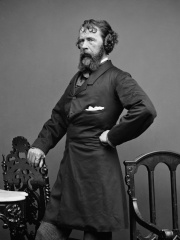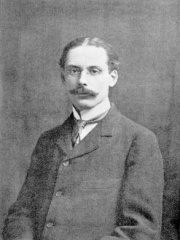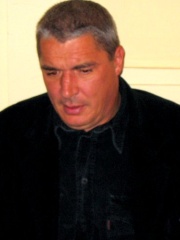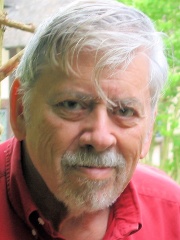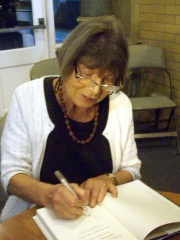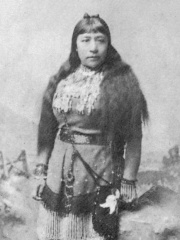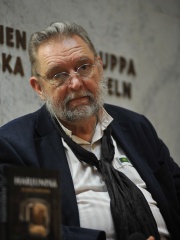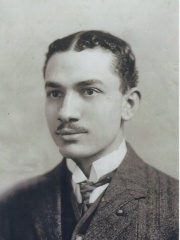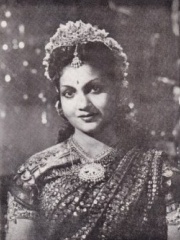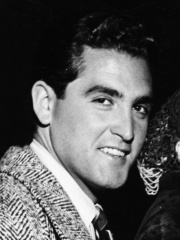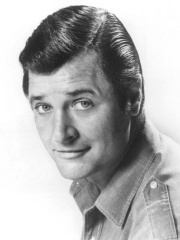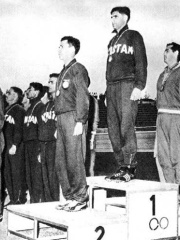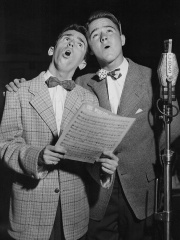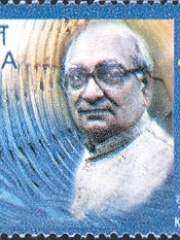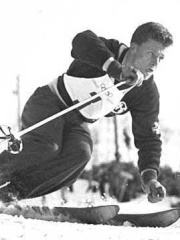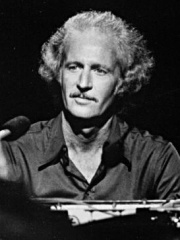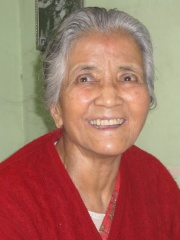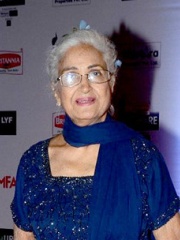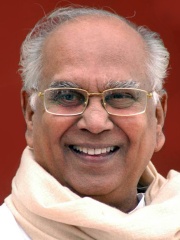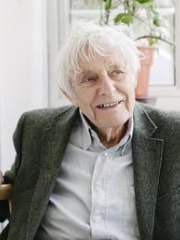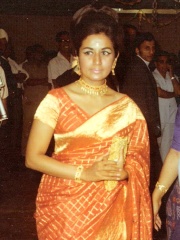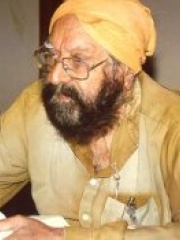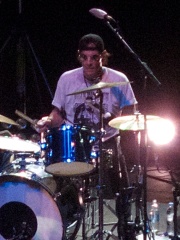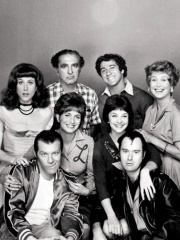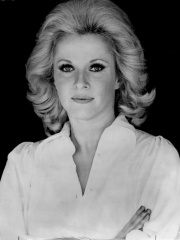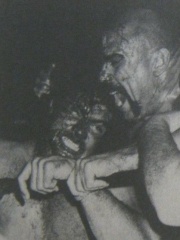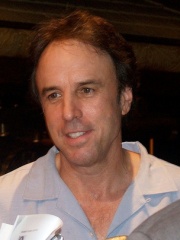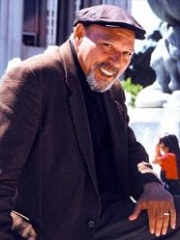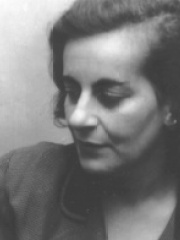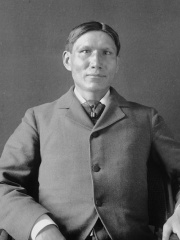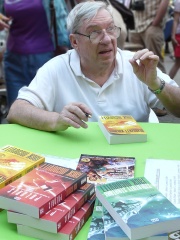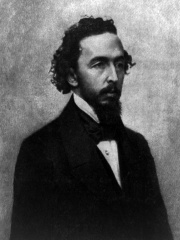WRITER
John Seigenthaler
1927 - 2014
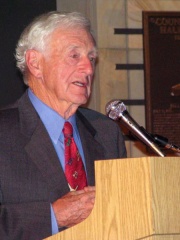
 John Seigenthaler
John Seigenthaler
John Lawrence Seigenthaler ( SEE-gən-thaw-lər; July 27, 1927 – July 11, 2014) was an American journalist, writer, and political figure. He was known as a prominent defender of First Amendment rights. Seigenthaler joined the Nashville newspaper The Tennessean in 1949, resigning in 1960 to act as Robert F. Kennedy's administrative assistant. He rejoined The Tennessean as editor in 1962, publisher in 1973, and chairman in 1982 before retiring as chairman emeritus in 1991. Read more on Wikipedia
His biography is available in 17 different languages on Wikipedia. John Seigenthaler is the 6,276th most popular writer (up from 6,712th in 2024), the 11,303rd most popular biography from United States (up from 13,519th in 2019) and the 825th most popular American Writer.
Memorability Metrics
Page views of John Seigenthaler by language
Among WRITERS
Among writers, John Seigenthaler ranks 6,276 out of 7,302. Before him are Nathaniel Parker Willis, Edwin Arlington Robinson, Miklós Haraszti, Andrzej Stasiuk, Robert B. Sherman, and Margaret Drabble. After him are Sarah Winnemucca, Stephen Glass, Ágnes Nemes Nagy, Matti Yrjänä Joensuu, Brené Brown, and Ahmed Zaki Abu Shadi.
Most Popular Writers in Wikipedia
Go to all RankingsNathaniel Parker Willis
1806 - 1867
HPI: 51.38
Rank: 6,270
Edwin Arlington Robinson
1869 - 1935
HPI: 51.37
Rank: 6,271
Miklós Haraszti
1945 - Present
HPI: 51.37
Rank: 6,272
Andrzej Stasiuk
1960 - Present
HPI: 51.37
Rank: 6,273
Robert B. Sherman
1925 - 2012
HPI: 51.36
Rank: 6,274
Margaret Drabble
1939 - Present
HPI: 51.36
Rank: 6,275
John Seigenthaler
1927 - 2014
HPI: 51.36
Rank: 6,276
Sarah Winnemucca
1844 - 1891
HPI: 51.36
Rank: 6,277
Stephen Glass
1972 - Present
HPI: 51.35
Rank: 6,278
Ágnes Nemes Nagy
1922 - 1991
HPI: 51.35
Rank: 6,279
Matti Yrjänä Joensuu
1948 - 2011
HPI: 51.35
Rank: 6,280
Brené Brown
1965 - Present
HPI: 51.34
Rank: 6,281
Ahmed Zaki Abu Shadi
1892 - 1955
HPI: 51.34
Rank: 6,282
Contemporaries
Among people born in 1927, John Seigenthaler ranks 442. Before him are Anjali Devi, Jacques Bergerac, Tatyana Zaslavskaya, Richard Long, Abdul Hamid, and Dick Jones. After him are Krishan Kant, Stein Eriksen, Mose Allison, Sahana Pradhan, Kamini Kaushal, and Abby Mann. Among people deceased in 2014, John Seigenthaler ranks 495. Before him are Jacques Bergerac, Rik Mayall, Béla Várady, Akkineni Nageswara Rao, Dannie Abse, and Dick Jones. After him are Nanda, Sahana Pradhan, Tony Settember, Khushwant Singh, Scott Asheton, and Yves Delacour.
Others Born in 1927
Go to all RankingsAnjali Devi
ACTOR
1927 - 2014
HPI: 51.73
Rank: 436
Jacques Bergerac
ACTOR
1927 - 2014
HPI: 51.67
Rank: 437
Tatyana Zaslavskaya
SOCIOLOGIST
1927 - 2013
HPI: 51.57
Rank: 438
Richard Long
ACTOR
1927 - 1974
HPI: 51.57
Rank: 439
Abdul Hamid
ATHLETE
1927 - 2019
HPI: 51.47
Rank: 440
Dick Jones
ACTOR
1927 - 2014
HPI: 51.42
Rank: 441
John Seigenthaler
WRITER
1927 - 2014
HPI: 51.36
Rank: 442
Krishan Kant
POLITICIAN
1927 - 2002
HPI: 51.34
Rank: 443
Stein Eriksen
SKIER
1927 - 2015
HPI: 51.21
Rank: 444
Mose Allison
MUSICIAN
1927 - 2016
HPI: 51.19
Rank: 445
Sahana Pradhan
POLITICIAN
1927 - 2014
HPI: 51.14
Rank: 446
Kamini Kaushal
1927 - 2025
HPI: 51.11
Rank: 447
Abby Mann
WRITER
1927 - 2008
HPI: 51.10
Rank: 448
Others Deceased in 2014
Go to all RankingsJacques Bergerac
ACTOR
1927 - 2014
HPI: 51.67
Rank: 489
Rik Mayall
ACTOR
1958 - 2014
HPI: 51.64
Rank: 490
Béla Várady
SOCCER PLAYER
1953 - 2014
HPI: 51.54
Rank: 491
Akkineni Nageswara Rao
ACTOR
1923 - 2014
HPI: 51.51
Rank: 492
Dannie Abse
WRITER
1923 - 2014
HPI: 51.50
Rank: 493
Dick Jones
ACTOR
1927 - 2014
HPI: 51.42
Rank: 494
John Seigenthaler
WRITER
1927 - 2014
HPI: 51.36
Rank: 495
Nanda
ACTOR
1939 - 2014
HPI: 51.34
Rank: 496
Sahana Pradhan
POLITICIAN
1927 - 2014
HPI: 51.14
Rank: 497
Tony Settember
RACING DRIVER
1926 - 2014
HPI: 50.98
Rank: 498
Khushwant Singh
WRITER
1915 - 2014
HPI: 50.94
Rank: 499
Scott Asheton
MUSICIAN
1949 - 2014
HPI: 50.94
Rank: 500
Yves Delacour
ATHLETE
1930 - 2014
HPI: 50.92
Rank: 501
In United States
Among people born in United States, John Seigenthaler ranks 11,305 out of 20,380. Before him are Betty Garrett (1919), Black Francis (1965), Robert B. Sherman (1925), Mary Costa (1930), Sybil Bauer (1903), and Bobby Ball (1925). After him are Don Muraco (1949), Christine Korsgaard (1952), Carmelo Anthony (1984), Kevin Nealon (1953), Johnny Gaudreau (1993), and Sarah Winnemucca (1844).
Others born in United States
Go to all RankingsBetty Garrett
ACTOR
1919 - 2011
HPI: 51.37
Rank: 11,299
Black Francis
SINGER
1965 - Present
HPI: 51.37
Rank: 11,300
Robert B. Sherman
WRITER
1925 - 2012
HPI: 51.36
Rank: 11,301
Mary Costa
SINGER
1930 - Present
HPI: 51.36
Rank: 11,302
Sybil Bauer
SWIMMER
1903 - 1927
HPI: 51.36
Rank: 11,303
Bobby Ball
RACING DRIVER
1925 - 1954
HPI: 51.36
Rank: 11,304
John Seigenthaler
WRITER
1927 - 2014
HPI: 51.36
Rank: 11,305
Don Muraco
WRESTLER
1949 - Present
HPI: 51.36
Rank: 11,306
Christine Korsgaard
PHILOSOPHER
1952 - Present
HPI: 51.36
Rank: 11,307
Carmelo Anthony
BASKETBALL PLAYER
1984 - Present
HPI: 51.36
Rank: 11,308
Kevin Nealon
ACTOR
1953 - Present
HPI: 51.36
Rank: 11,309
Johnny Gaudreau
HOCKEY PLAYER
1993 - 2024
HPI: 51.36
Rank: 11,310
Sarah Winnemucca
WRITER
1844 - 1891
HPI: 51.36
Rank: 11,311
Among WRITERS In United States
Among writers born in United States, John Seigenthaler ranks 825. Before him are Katie Couric (1957), August Wilson (1945), Judith Merril (1923), Nathaniel Parker Willis (1806), Edwin Arlington Robinson (1869), and Robert B. Sherman (1925). After him are Sarah Winnemucca (1844), Stephen Glass (1972), Brené Brown (1965), Charles Eastman (1858), Jack McDevitt (1935), and Bayard Taylor (1825).
Katie Couric
1957 - Present
HPI: 51.44
Rank: 819
August Wilson
1945 - 2005
HPI: 51.42
Rank: 820
Judith Merril
1923 - 1997
HPI: 51.42
Rank: 821
Nathaniel Parker Willis
1806 - 1867
HPI: 51.38
Rank: 822
Edwin Arlington Robinson
1869 - 1935
HPI: 51.37
Rank: 823
Robert B. Sherman
1925 - 2012
HPI: 51.36
Rank: 824
John Seigenthaler
1927 - 2014
HPI: 51.36
Rank: 825
Sarah Winnemucca
1844 - 1891
HPI: 51.36
Rank: 826
Stephen Glass
1972 - Present
HPI: 51.35
Rank: 827
Brené Brown
1965 - Present
HPI: 51.34
Rank: 828
Charles Eastman
1858 - 1939
HPI: 51.32
Rank: 829
Jack McDevitt
1935 - Present
HPI: 51.28
Rank: 830
Bayard Taylor
1825 - 1878
HPI: 51.19
Rank: 831
